This article was originally published in Essay #13. Interview and photography by Martijn van Velden.
Martijn: Let’s start at the beginning. I think we first met around 2014/2015. Through Woetoe (Wouter Molenaar), just street skating in Rotterdam, filming. How old were you at that point?
Yannick: In 2014, I would’ve been 16.
14 or 15 for me, young boys we were. Around that time I was filming a bit and then later on I bought a photo camera. We shot some photos for Essay before, actually. Do you remember that?
What photos?
For a ‘teveromtefietsen’ article.
I have a photo in that?
Two photos! The 50-50 on the high ledge at Keller.
Oooooh! Yes yes.
And at ‘haaienvin’, no-comply over the little pole.
Ah yes, it was the same day. Shit was hella gnarly looking back on it, I guess my skating didn’t get better after all [laughs].
That would’ve been Essay #4 in 2017. Five years ago.
Wtf.
What age did you start skating?
At 11, that would be 2009.
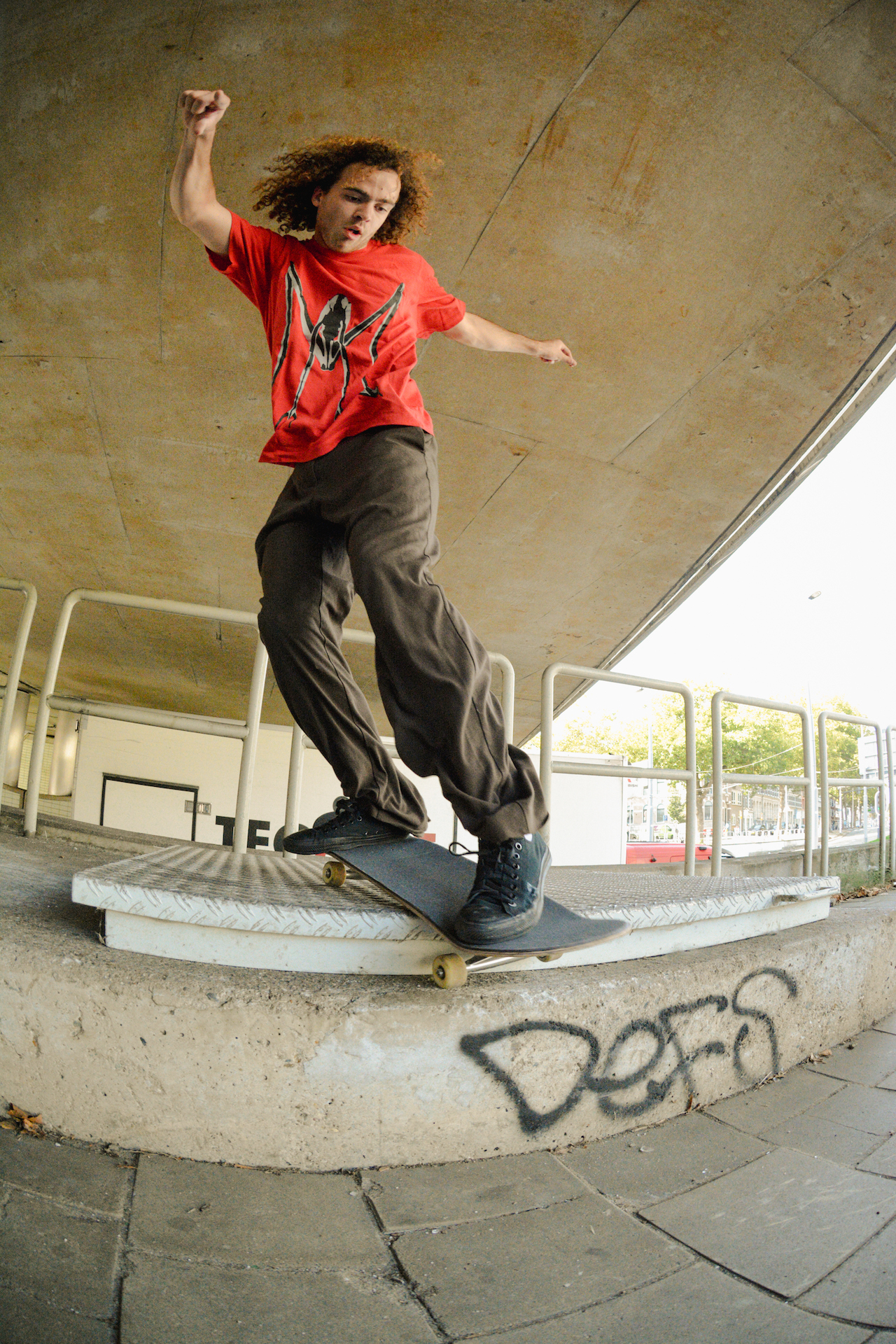
At a young age, growing up skating, did you already pay attention to music at all?
Yes, it was definitely already a part of my life, I was just not making it myself at that point. From a really young age I was super obsessed with listening to it and exploring new stuff.
What type of music were you listening to at that point?
A lot of old soul, a lot of hip hop. Both new hip hop like Waka Flocka and old school stuff. I really liked Big L. Then Nina Simone, Otis Redding and a lot of Bob Dylan. And then after watching the Mark Gonzalez part in Video Days I got into jazz. I was always listening to a lot of things and I’d come across new music naturally.
I guess growing up you just come across a lot of stuff, skate videos too. You’ve always skated a lot with the Boombap crew. Boom bap is also a hip hop genre. Did those older guys teach you a lot about music as well? Marc Bolhuis maybe?
Yes, from Markie for sure. A lot of hip hop and some punk as well, but I think most music came from skate videos at that point … and skate 3 [laughs].
Yes, of course. Classic!
With Joy Division in it, all those songs, but those older guys mostly just taught me a lot about friendship and stuff. I always felt protected and they taught me how to be a sort of older brother to people. Then later on I took on that role for other people, so I for sure learned a lot on a personal level. It’s not like they were trying to do that either, we were just fucking around.
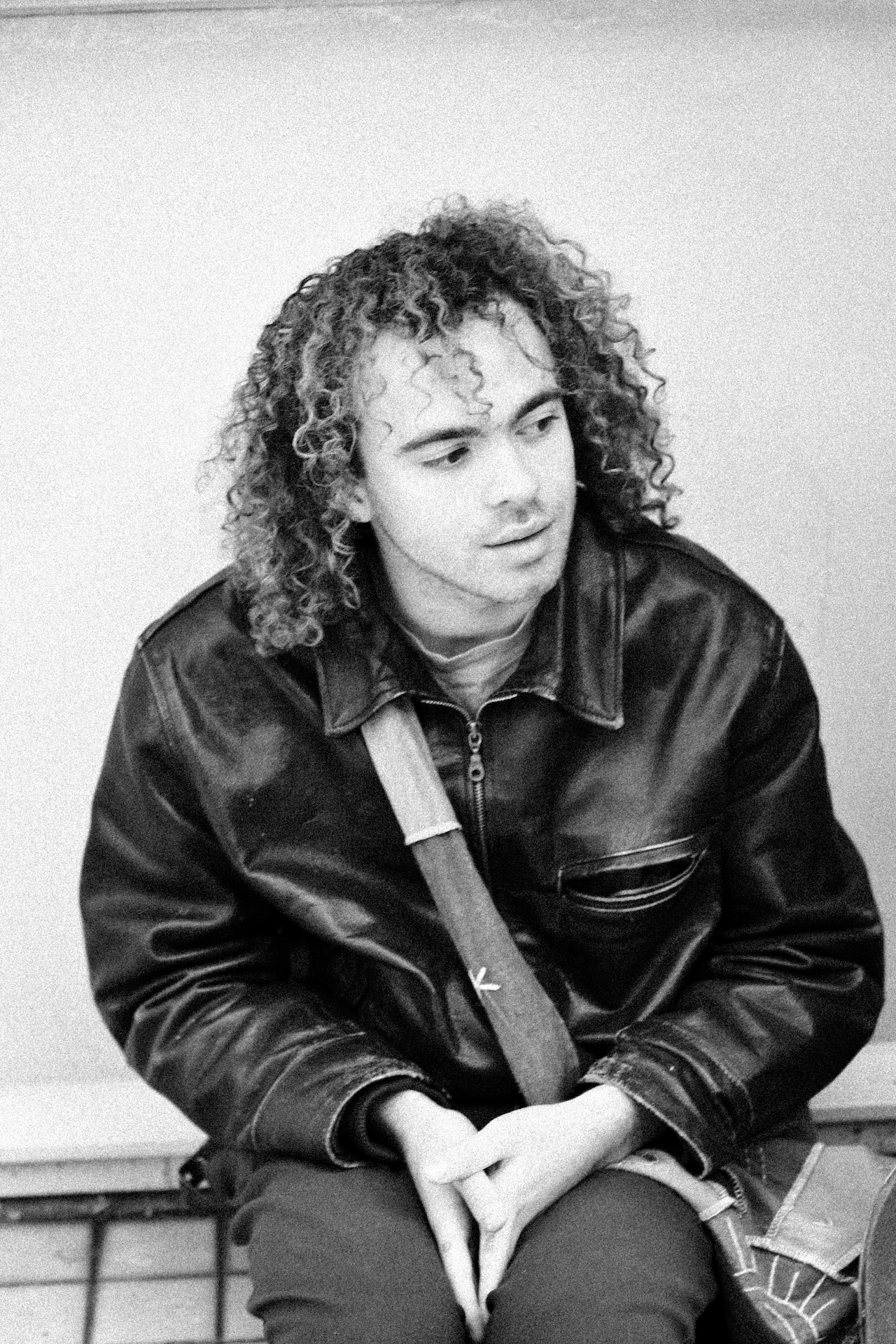
Of course skating is a lot more than just skating, it’s very much a social thing. I experienced that myself as well growing up, you get to know so many people and just feel accepted. Even if you’d go to another city or country, you’d both have a skateboard so there’s that connection right away.
There’s that instant connection indeed. There’s two sides to it though. You’re very much welcomed and accepted, but as it’s still a very social thing, there are downsides to that too. Skaters can be so fucking negative [laughs]. It has two sides to it, but I think that’s normal. Everything is that way, so it’s fine. But I learned so much from skating and just being on the streets, being outside. Just learning from the city and from the people around you.
Then at one point, you started making music as well as just listening to it. You started doing hip hop, just a beat, some verses, rapping. Did you slowly roll into that or was there a point where you decided that that’s what you wanted to do?
There’s a few people who played a part in that. I was just skating all the time at Westblaak with Mats, Manu and Hamza. Hamza didn’t skate, but he drew a lot and he always had some bars he would spit and those were in English. I found that very interesting. Then one night we decided to write a verse at my place. Sometime later we ended up at Mats in the studio, drinking a lot of gin and I just jumped in front of the mic. It was really fun and Mats told me I should come back someday and do something more serious. I was like ‘nahh, fuck that’, but later on I did come back and from that point on I was there three times a week.
Then you just hit it off.
Yeah, but it started as a joke. We were always joking around anyway. We took nothing seriously, we were 16 and just high and drunk all the time. But I grew up doing the music and then it got more serious all of a sudden. It’s weird, but I’d say it was a smooth transition.
So, right away, you started writing as well. Was it hard to write and rap/sing in English?
Not really, music was such a big part of me. Growing up I knew all the lyrics from the songs I’d listen to, just from hearing them over and over. I’d recite the lyrics, always out loud. Making music, making art, even just being a person is just imitating what you see. Pure originality doesn’t exist, because everything has been done at some point. You just have to repurpose it in a way that fits your personality.
Is it the same with skating? You also develop your own style and it’s a way to be creative.
Yes, absolutely. Writing is easy, because life is an endless source of inspiration. You can say anything and there’s a billion ways to say it. And with skating it’s the same, because you could do an ollie in any number of ways. At different spots, during the day or at night, with a certain style, switch, regular, fakie, nollie. So with writing as well, it’s so open and free. If you know what you want or how you want it to sound or how you want it to look, you can really create something beautiful.
So with both you developed your own style and of course that’s influenced by your interests and experiences.
Personality also shines through in everything you do, with skating very much so. If you look at the way people skate, it says a lot about them. Take Rob Maatman for instance, he is so relaxed, he’s just a nice guy and it shows in his skating. And Sneep, you can just tell he’s smart from the way he skates. And Woetoe … just chaos [laughs]. That’s nice and it’s the same with music, you just translate yourself.
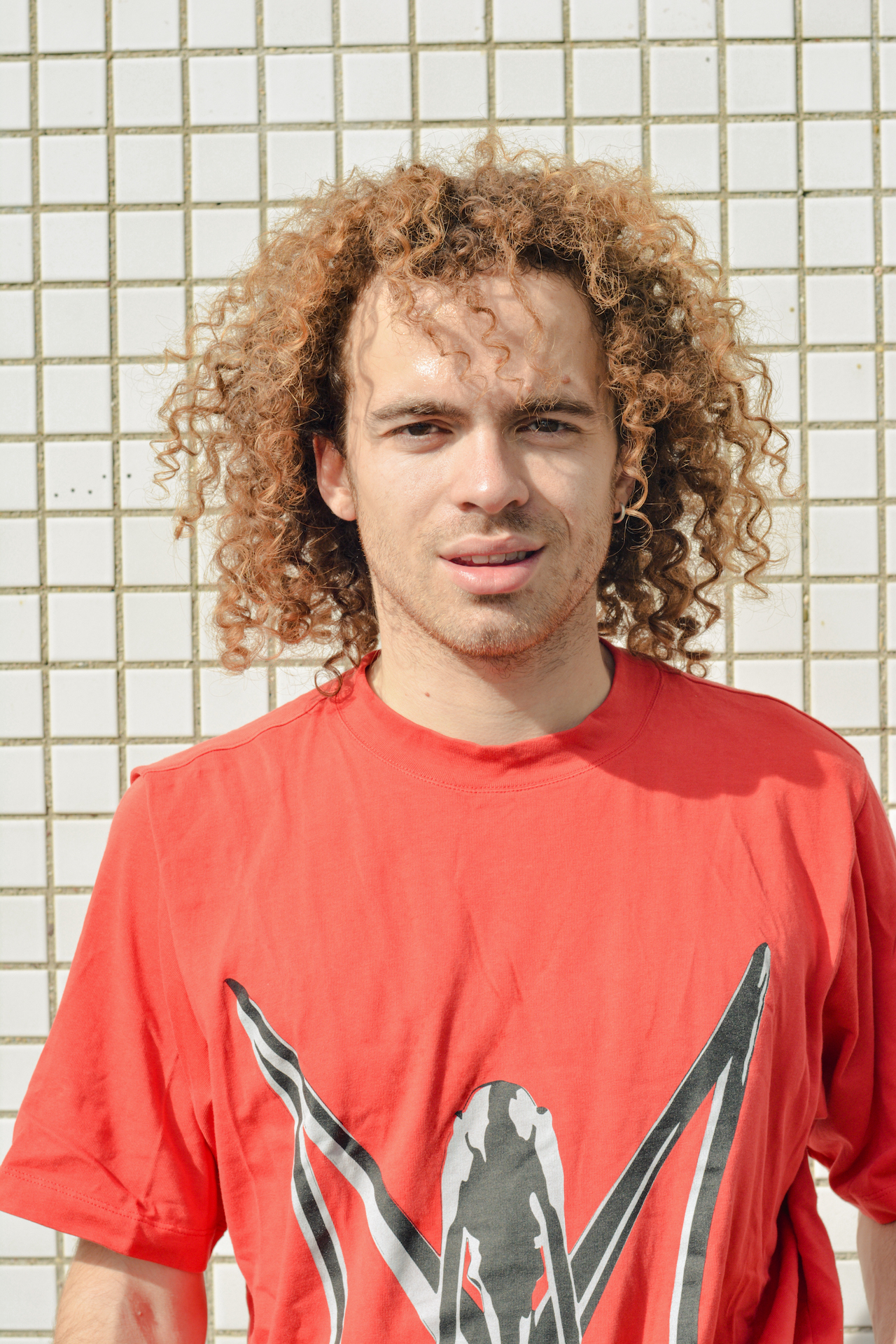
Have you ever played any other sports?
I did a lot: I played football for a long time and a lot of fighting sports. I played rugby for about a month.
But in the end skating was the main thing? With skating you just have so much freedom, no obligations.
With football you just have to kick the ball into the goal…
There’s rules and all that.
Yes, you have to score, you can’t be offside. It’s beautiful in a way, but very different. It’s very confined and skating can become like that as well. That’s the danger of turning a hobby into a job, you have to adjust it to the rest of the world to maintain yourself. Skating can become like that, if your income depends on skating contests, you’re going to have to limit yourself. The same goes for music…
Do you feel that as well? With music you’re free to do what you want, but are you now at a point where you have more obligations?
No, no obligations, but some time ago I did make myself believe just that. I really wanted to write for other people, so I started to make a lot of demos. Really hundreds of them, but they came from a different place than purely from myself. It really taught me a lot, but then you’re just in the studio hoping someone will like it and that’s where you can lose yourself. I guess it can be like that with skating, where you’re filming clips and just hoping to get a sponsor out of it. I guess that’s a bit more pure, more a kid thing anyway. But you can really lose yourself if you’re just doing things for other people. I had that with writing for a while up to a point where I felt I didn’t have any inspiration for my own stuff anymore. I got that back, but it can become no fun pretty quickly, faster with music than with skating.
On the other hand, if you want to achieve something, like release a song or a video clip, maybe you need that mindset to a certain extent. You still have to make something that people would want to listen to or want to see.
But still, if something comes from yourself and it’s pure, you’re like a clear mirror. People can look at you and see themselves. If you try to force something, everyone will look straight through it. And perhaps some people can find themselves that way, but not for the right reasons. If you can truly be yourself within your music and express yourself the way you want to, you’ll carry out the right message. The most important thing is to inspire people.
Also with skating, if you don’t have your own style and you just try to force it, it won’t work.
Any style you try to copy, it’s see-through. Like all the people who wanted to look like Dylan Rieder, for example, and now everyone wants to look like those Scandinavian skaters. It’s cool, it’s a good style…
[I show off my Big Boy pants]
[laughs] Yes but still, you make it your own thing. Of course you can take inspiration from things, just don’t fully force it.
You can’t become a copycat.
That’s fine too. Those people will find themselves. It’s whatever…
Alright, a last comparison with skating. Did you learn a lot of things from skating that you now use to make music? Like perseverance, that whole mindset.
Everything, skating taught me everything about life. Also on a social level, like you can be alone or together with people, it goes hand in hand. You don’t have to be an introvert or an extrovert, you can balance in between. Falling and getting back up, style, swag, expressing yourself, really everything I learned from skating. Then again if you’re looking for those lessons I think you could find them anywhere. In a game of tennis or whatever, but in a different way. I think skating is just for insane people [laughs].
So, you started out making hip hop, you got into it through friends. Now some years later your music really grew into your own thing. Like you say, you find your own style and make it your own. That’s also something that’s not set in stone, but changes all the time.
Absolutely.
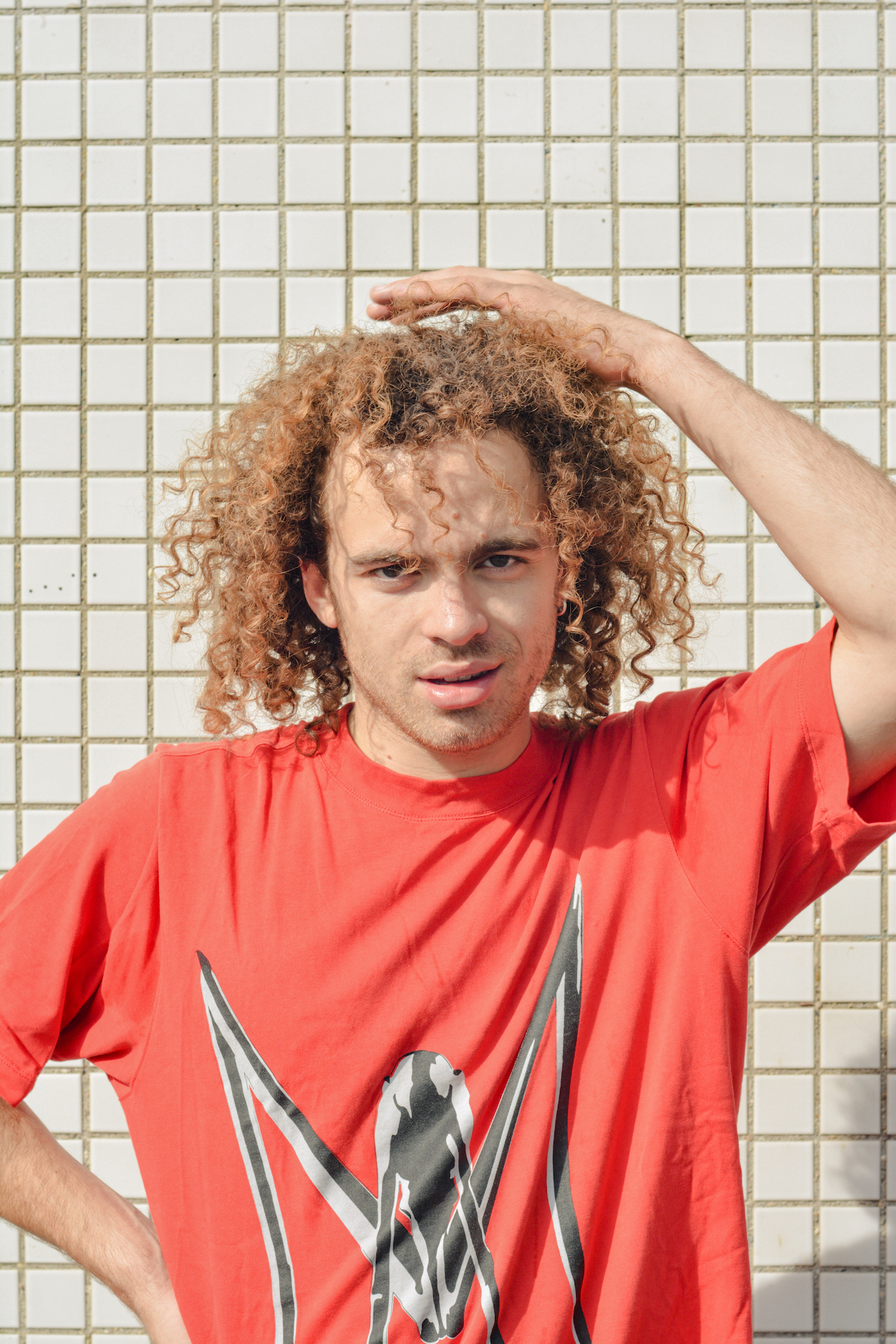
I always liked seeing that everytime you release something, it’s something slightly different. Now you can still hear the hip hop roots, but it has become something else. The way I remember it, when you released the album A Sunday Kind of Love, it felt like a turning point for you. You can clearly hear it came from hip hop, but there’s a lot more singing and a softer side to it. Did you experience that as a point where you headed in a different direction?
Yes, that was exactly the moment everything changed for me, with my writing too. I was really able to put my ego aside making that album. With rapping, the music was always about me, and me in comparison to others. Like ‘I’m tough, check this out, I smoke a lot’ and just make a fuss you know? That was fun and also our state of mind a bit at that time I’d say. I wasn’t always like that, but whenever I’d go to the studio, I’d assume this confidence, which came from a place of insecurity. Then I met Tommy van Leuken, Wessel Slager and Abe Wientjens and we started making music together. Those guys were so sweet and loving, just beautiful people. They really changed me: they made me a nicer, softer person. I also got the courage to show that side of me, it’s scary you know?
So I started putting that in my music and that’s where it really changed. A Sunday kind of Love was also kind of made for a male audience, for them to accept their feelings and not be so hard all the time. What I learned from those guys, I wanted to put on the album. It was just soft and about love. My songwriting changed completely and I just couldn’t go back after that. It really was the most therapeutic project I’ve done, everything just changed after that.
And the title, A Sunday Kind of Love, comes from the Etta James song?
Indeed. Also it’s just like a peaceful place, like a deep breath.
Was older music, like Etta James or just stuff from the 60’s, a big influence on that album?
Yeah, it’s like a soul album. I’ve always been inspired by so many things, but what I put in my music was of course hip hop in the beginning. Old school, new school, like really early trap music. Then later on I started to use other influences, like Nina Simone, Etta James and Otis Redding. D’Angelo too, a different time, but I’ve always liked the soul. My influences are really 360 degrees and with everything I take inspiration from different places, that’s why it’s changing all the time.
And the combination of everything will lead to your own thing, along with your own input and style?
That’s why originality doesn’t exist, but you can still be original. If you’re influenced by six different things, you can take different things from each and together it’ll create a whole new thing. It’s not entirely new, but I think you have to embrace your influences, otherwise you’re lying.
If somehow you are not inspired by anything, and you just start from scratch, maybe it wouldn’t sound very good. It would be pure, but…
I believe it’s important to be in sync with the world and the people around you, to have a connection. It’s important to have influences, so that people can recognize what they’re hearing. That way you can reach people, open them up and inspire them. I think mainstream music is very intriguing, because that’s what the majority of the world likes for some reason. How does that work? What makes all these people so synchronised? I think it’s really interesting and with music that’s just endless.
You write all of your songs yourself. Do you use a lot of things from your own life experiences in your writing?
I’ve been writing with other people as well in the last year. That’s fun, it’s really about working together. But with writing I usually don’t think about it all that much, it just happens.
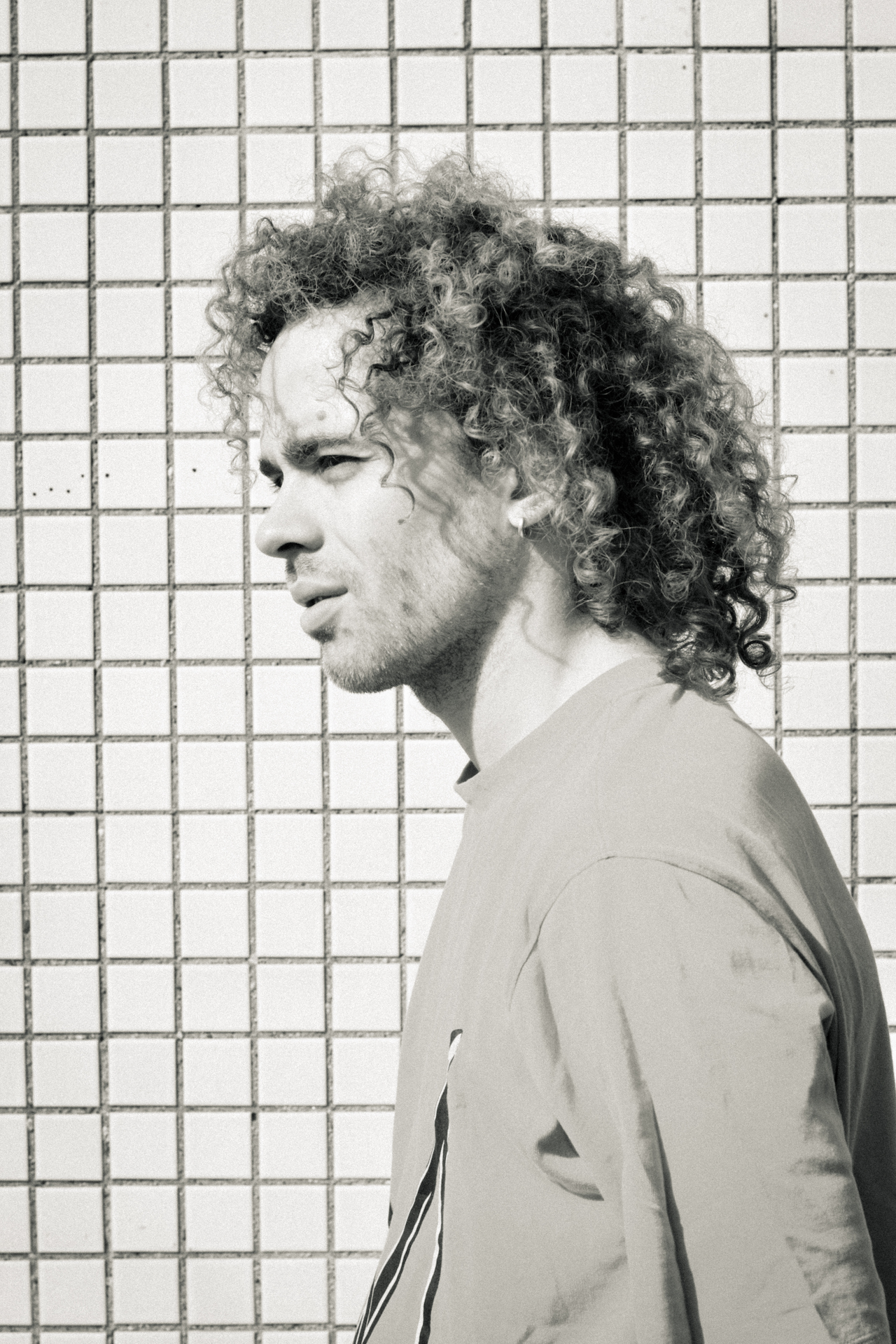
Naturally.
It’s like déjà vu: my head comes up with it before I can and then it’s just there on the paper. But my inspiration, like subconsciously, just comes from love mostly … love and pain. And a lot of times just relationships between people.
I guess it can help if music speaks to people, even though everyone experiences things differently. If people can recognize themselves in the music, they’ll have an emotional connection instantly.
Absolutely, I always try to write very openly. I try to write something that could be about anyone. I rarely use names, cities or specific situations in my songs. I want synchronisation, I want the songs to be goal oriented and decisive. It has to be simple, but at the same time beautiful and funny. And I like things to be open to interpretation. That’s nice, because when I listen to music, I don’t want to hear about what you did yesterday. Like those old blues songs, I can’t drown in those lyrics, you know? I’ll drown in like 3 words, such as when Thom Yorke says ‘Nice dream’. That could mean 30 or 40 things, thousands of things!
And to every person it could mean something else.
Right and that’s important with music, so you can get in sync [laughs].
So the last two years every month was different from the last because of Covid, with a lot of lockdowns. How did that affect you as a musician? No shows of course and a lot of things were on hold or just not moving along. Did that slow you down or did it also have a positive side to it?
I just got better at making music.
You just kept going?
I had to confront myself from time to time, I mostly stayed at home.
A lot of time to think about things.
I didn’t really go to house parties or hang out with people in general during covid. I was very isolated and it made me look in the mirror a lot of times. Sometimes I just kept on working, working too hard. I wrote a lot of songs during Covid. In the end I’d say I just kept going and came out better than I was before.
Now everything is pretty much back to normal. You’ve played some shows again. Tonight at midnight a new single comes out. What else is in the making? Any shows, EPs? An album? Anything you want to say about that?
Yes, I’ll tell you everything. I don’t like announcing things like that on the internet, because sometimes it just feels like you’re speaking into the void. So, I’ll just say it here [laughs]. I’ll release a few more songs this year and then next year an EP, which will be sort of my own R&B dreamscape. That’s something I’ve been wanting to do for a long time that’s finally happening and then I carefully want to work on an album as well. Apart from that I’m doing two side projects, which are gonna be really dope. I’m in a Rock’n’roll band with Woetoe, that’s called ‘Student Driver’. I’ve also started a duo with a producer from Amsterdam, Styn, which will be called CYD, Confess Your Dreams. So those things are coming next year and hopefully lots of gigs, there’s some coming. We’ll just keep going and try not to go mad [laughs].
Any plans to release music on CD’s or on vinyl?
Yes! For the next EP we’re definitely planning on doing that. I’ve never done a physical release, but that’s something we’re going to do for sure. I was in a CD store recently and someone came up to me saying he was trying to buy my CD online. Sometimes you just forget that people actually listen to your stuff, that you actually reach people. In the end we’re just small bacteria on a big rock, but that’s coming for sure.
I think that was it, anything you’d like to add?
I’d like to thank Rick den Ouden, that’s it.
Aight, S/O to Rick!
Yannick is playing his only show for 2023 in the Laurenskerk in Rotterdam. Tickets are available here.

